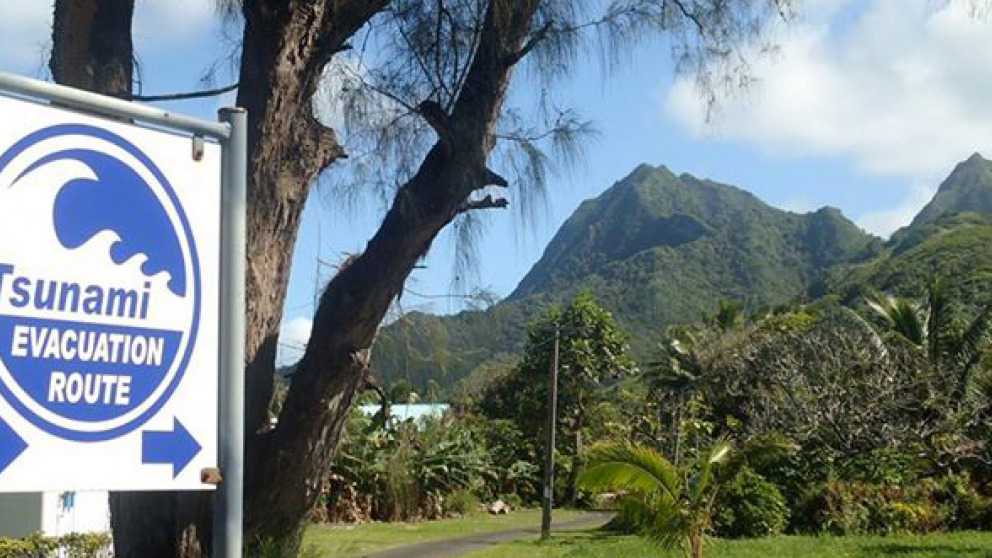“Many Causes of Natural Disasters are Political and Social”: Q&A with David Alexander
21.09.2015

The growing world population, climate change, rapid urbanisation, and the international interdependence of economies are all increasing our vulnerability to natural hazards. Such major global challenges are the focus of the second international Potsdam Summer School on "Facing Natural Hazards", which is taking place from 14 to 23 September. One of the most well-known researchers in this field is David Alexander, a professor at the Institute for Risk and Disaster Reduction at University College London. He spoke to the summer school participants about post-disaster response. In our interview, I also asked him what should happen before disasters strike and why it’s so hard to translate knowledge into action.

How can science help us to deal with natural disasters?
A more sophisticated understanding of natural disasters will help us in the long run. But we have to be careful to remember that many of the causes of natural disasters are political and social in origin. The hazard is the driver of the event, but the vulnerability – the way humans put themselves at risk – is the bigger determinant of the disaster potential. In the short term, power structures, politics, decision-making, and above all vulnerability are the key.
What exactly are decision-makers doing wrong?
To make a bold generalisation: Neither governments nor communities care about natural hazards unless they are forced to, and that’s because negative things have a low priority in voters’ aspirations. If you promise a better waste-water treatment plant to the electorate, they don’t vote for you on that basis. But if you promise that the stars of stage and screen will perform in the town square, they may well vote for you. This can have serious financial consequences. We’ve known for decades how we can become more resilient to natural hazards, but we often feel that we can save money by not preparing. Then when disasters do happen, we have to react, and the costs are much higher than if we had taken precautionary measures.
In preparing for this interview, I watched your mini inaugural lecture on Youtube, in which you emphasise the relation between disaster risk reduction and human rights. But the example you just gave of the two very different election promises goes to show that risk reduction has a hard time in well-functioning democracies as well.
There is a strong relationship between disaster risk reduction and human rights for various reasons. One is that denial, restriction or repression of human rights means that people do not have access to the information needed in order to reduce disaster risks. It also means that they may have a very limited sphere of action in this field – what they do may be regarded with great suspicion by the government. It may mean that the government dictates the policy in a blind way, is perhaps unwilling to learn or doesn’t consider it a priority. And when every day is a disaster, of course it really isn’t a priority. In Syria, they have an earthquake hazard, but a major earthquake will be absolutely minor compared to what is going on.
Human rights also interface with corruption, which is an absolutely major factor in disaster risk, because disasters can be an opportunity for unscrupulous governments or people. And it’s important to recognize that corruption takes many forms. In Britain, we have a problem with elite capture, meaning that the elites have captured the political agenda. The social ‘cleansing’ of London is going on at an increasing pace, and resilience to risks like terrorism, floods, storms, blackouts, transportation crashes or loss of basic services is seriously diminished by this. Since the start of the recession in 2008, the number of billionaires has doubled in London. At the same time, the poverty rate there has also doubled. The poor are funding the rich, and this is not good for disaster risk reduction.
Have you observed effects of this growing gap between rich and poor in London in recent extreme-weather events?
In the last floods in the River Thames basin, you could see the effects of elite capture in Windsor and Eaton, two of the richest communities in the United Kingdom. They managed to divert the Thames to a lower middle-class area. There weren’t any working-class areas – if there had been, of course they would have diverted the river towards them. So there was less flooding or no flooding in the upper-class area and more flooding in the lower-class area. You can learn as much as you want about hydrology, meteorology and so on, but the realities of natural hazards have much to do with political decision-making processes.
In Nepal, people had been trying for a long time to improve resilience before the massive earthquake struck in April of this year. And yet it took a toll of more than 6,000 people and injured more than twice as many.
Political polarization has done a lot to put the brakes on earthquake preparation in Nepal. When I was in Kathmandu in 2008, there were hugely sophisticated studies of hazards. And they were valuable, but you could go around town in a beat-up Suzuki taxi and you could see which buildings were vulnerable. Now why were they still vulnerable? Nepal was actually using the scientific information. They had the GIS [geographic information system], they had the studies done by expensive consultants of where the floods might occur, where the sizeable damage might be, but they didn’t have the ropes, hard hats, ladders and first-aid kits. There is a tendency to spend money on ever more sophisticated techniques and to ignore the basics. Until every street corner has trained operatives, we’re not going to rescue people.
We’ve talked a lot about the problems of disaster risk reduction. Could you name any countries or regions that have done an exemplary job of improving their resilience to natural disasters?
Sweden has a pretty good system. The natural disaster that has hit Sweden hardest was the Indian Ocean tsunami in 2004, in which 495 Swedes were killed. They brought them back and didn’t know what to do with them - they had no mass fatality plan. The government then founded the Swedish Emergency Management Agency. It didn’t work, they had the honesty to re-found it in a different way, and 11.5 months later they had the best system in the world. The agency addresses the entire spectrum of threats and risks, from everyday accidents up to major disasters. The main feature of its approach is that it is participatory: there is a sense of being grown-up, of joining in. Volunteerism is very helpful, because it connects people with the governmental side.
Header picture: © Charles Hadfield, CC BY 2.0
